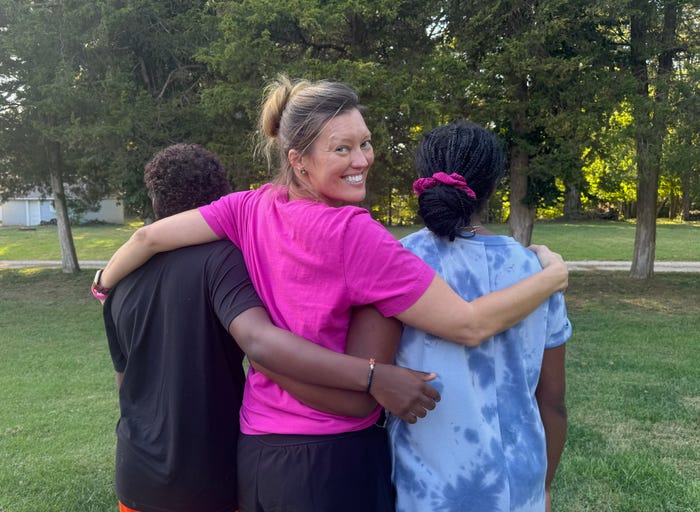UPDATE: Parents are urgently adapting their communication strategies to connect with their teens more effectively, as traditional methods yield minimal responses. Frustrated by one-word answers, many are turning to innovative techniques that foster deeper conversations.
Recent insights by Rachel Garlinghouse reveal that using “I” statements can transform parent-teen interactions. After struggling with her own children’s reluctance to engage, Garlinghouse explored new communication methods, leading to significant improvements in their exchanges.
Teenagers are notorious for their brief responses, often retreating into their rooms or engaging with screens instead of conversing. This common scenario leaves many parents feeling isolated and frustrated. Garlinghouse’s breakthrough approach emphasizes observation and collaboration, creating a more inviting atmosphere for dialogue.
In a recent example, Garlinghouse confronted her teen about dipping grades by stating, “I’ve noticed your grades have been dropping lately.” This straightforward observation opened the door to discussion, minimizing defensiveness and inviting her child to share their perspective.
She followed with a poignant question: “I wonder if trying to balance sports practices and games with homework is challenging for you?” This approach not only acknowledges the teen’s struggles but also encourages them to reflect and articulate their feelings.
Garlinghouse’s technique includes affirming her child’s strengths, such as their aptitude for track and the benefits of sports on their health. By stating, “I don’t expect that you stop going to practices,” she emphasizes partnership rather than blame, reinforcing a “we” mentality in solving issues together.
At the core of her strategy is a willingness to assist. She offers practical help, like taking on laundry duties on busy practice nights, while reminding her teen that they still bear responsibility on other days.
Expressing emotions constructively is also critical. Instead of saying, “I am so angry your time-management issue is causing you to have a C-average,” she opts for, “I feel frustrated that there’s a time management issue, because it’s starting to impact the whole family.” This rephrasing highlights teamwork and the broader impact of their challenges.
As a result of implementing these strategies over the past few months, Garlinghouse reports a dramatic transformation in her conversations with her teens. What was once a struggle has evolved into a dynamic exchange that fosters responsibility and understanding.
Parents everywhere are encouraged to adopt these practical communication techniques to strengthen their relationships with their adolescents. As discussions around effective parenting continue to develop, Garlinghouse’s experience offers a beacon of hope for families seeking connection.
For more insights, read the full article on Business Insider.








































































